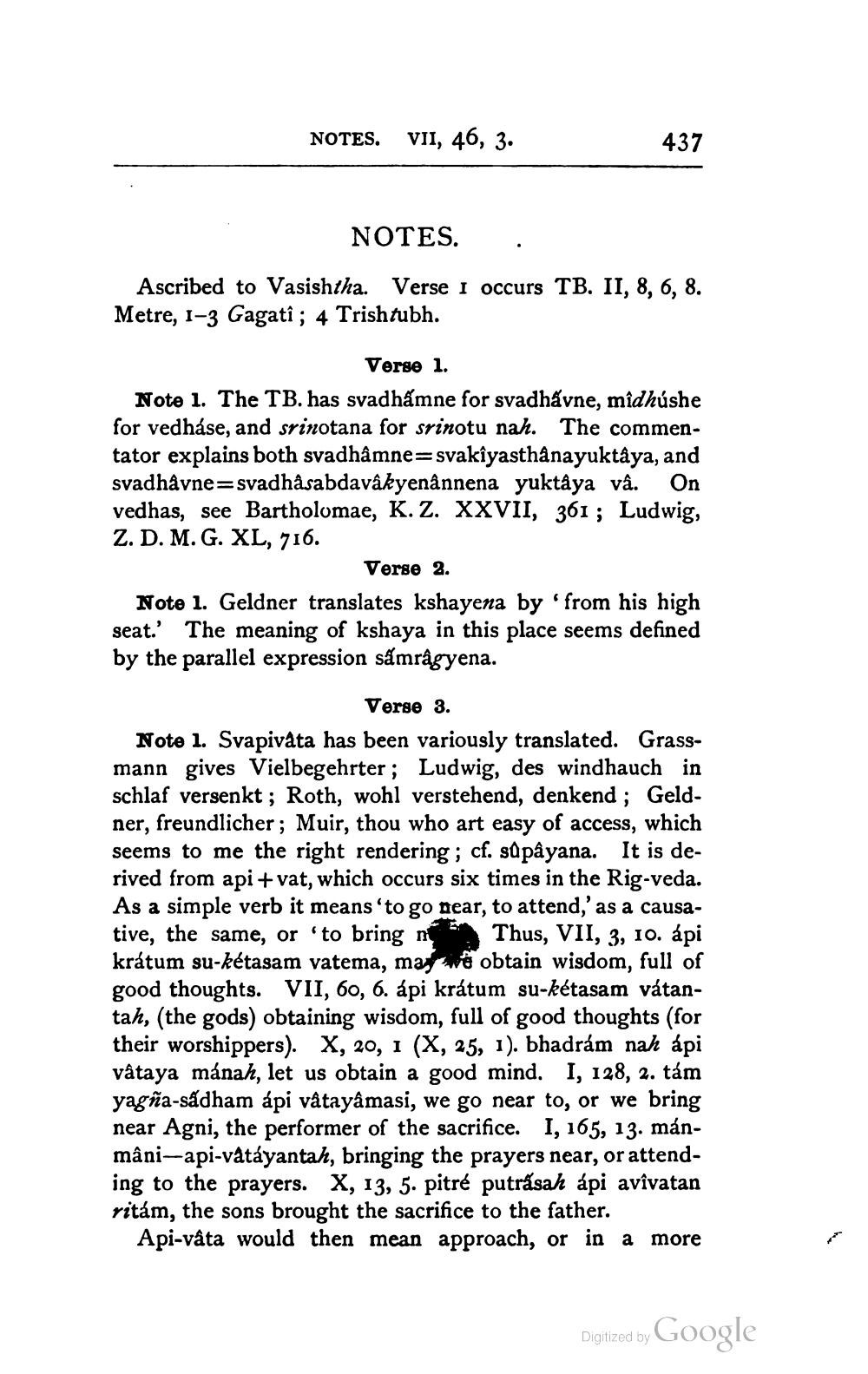________________
NOTES. VII, 46, 3.
437
NOTES
Ascribed to Vasishtha. Verse I occurs TB. II, 8, 6, 8. Metre, 1-3 Gagatî ; 4 Trishtubh.
Verse 1. Note 1. The TB. has svadhấmne for svadhávne, midhúshe for vedháse, and srinotana for srinotu nah. The commentator explains both svadhâmne=svakîyasthanayuktaya, and svadhavne=svadhâsabdavâkyenânnena yuktaya vâ. On vedhas, see Bartholomae, K. 2. XXVII, 361; Ludwig, Z. D. M. G. XL, 716.
Verse 2. Note 1. Geldner translates kshayena by 'from his high seat.' The meaning of kshaya in this place seems defined by the parallel expression sámragyena.
Verse 3. Note 1. Svapivata has been variously translated. Grassmann gives Vielbegehrter ; Ludwig, des windhauch in schlaf versenkt ; Roth, wohl verstehend, denkend ; Geldner, freundlicher; Muir, thou who art easy of access, which seems to me the right rendering ; cf. sd pâyana. It is derived from api + vat, which occurs six times in the Rig-veda. As a simple verb it means to go near, to attend,' as a causative, the same, or "to bring me . Thus, VII, 3, 10. ápi krátum su-kétasam vatema, may wo obtain wisdom, full of good thoughts. VII, 60, 6. ápi krátum su-kétasam vatantah, (the gods) obtaining wisdom, full of good thoughts (for their worshippers). X, 20, 1 (X, 25, 1). bhadrám nah ápi vâtaya mánah, let us obtain a good mind. I, 128, 2. tám yagña-sadham api våtayâmasi, we go near to, or we bring near Agni, the performer of the sacrifice. I, 165, 13. mánmâni-api-vâtayantah, bringing the prayers near, or attending to the prayers. X, 13, 5. pitré putrásah ápi avîvatan ritám, the sons brought the sacrifice to the father.
Api-våta would then mean approach, or in a more
Digitized by
Digitized by Google




